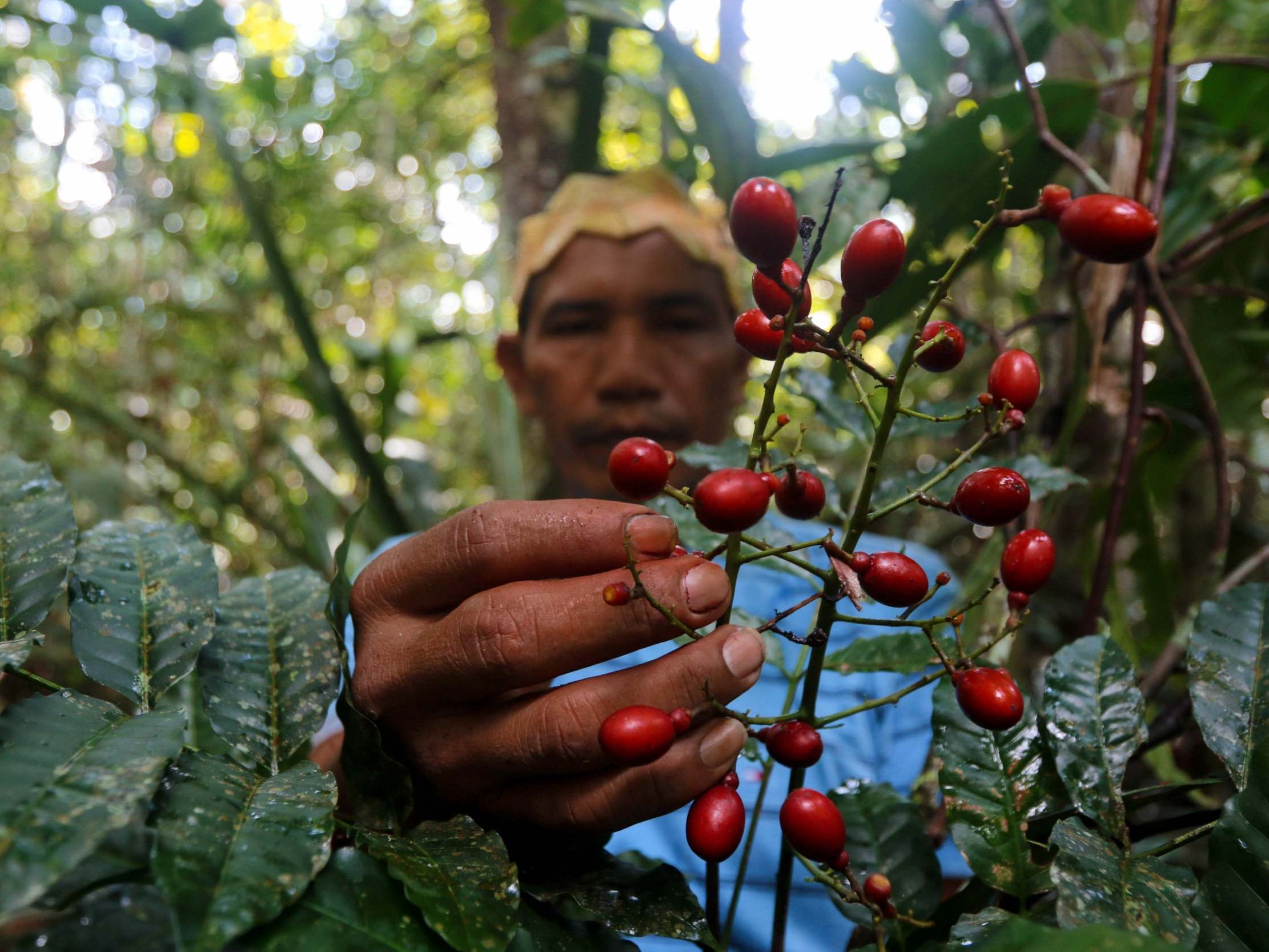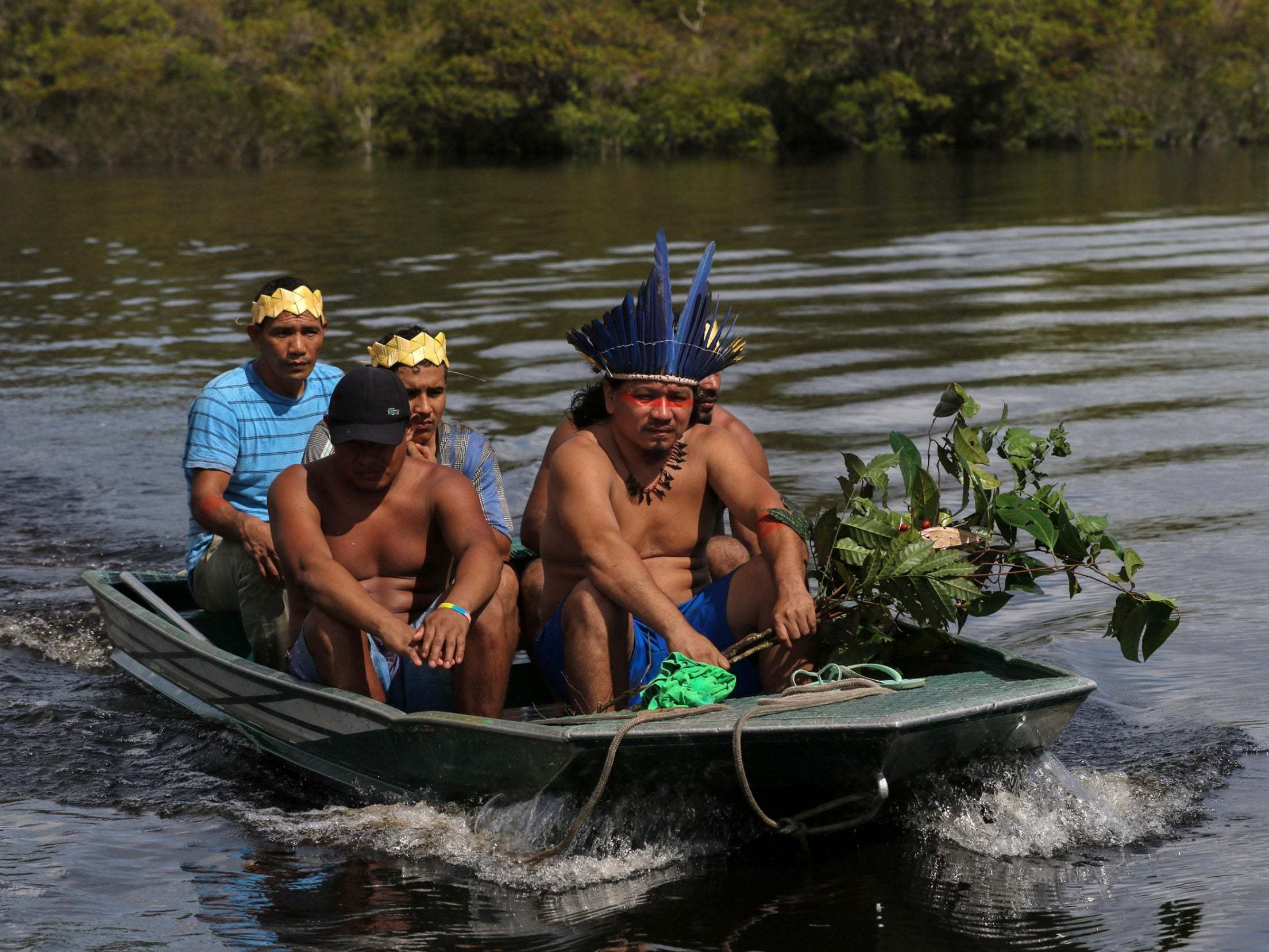Brazil’s remote tribes in Amazon turn to tree bark and honey to treat coronavirus
Activists criticise government inaction as Covid-19 spreads to indigenous communities

An Amazon tribe has turned to traditional remedies to tackle coronavirus amid rising concern over the Brazilian government’s failure to tackle the pandemic.
The Satere-Mawe community told reporters they used their ancestral knowledge of preparations made from tree bark, honey and native plants to treat symptoms of Covid-19.
They include carapanauba, saracuramira, caferana and saratudo, which are said to have either anti-malarial or anti-inflammatory properties.
“We’ve each used the knowledge handed down to us to gather treatments and test them, using each one against a different symptom of the disease,” said tribal leader Andre Satere Mawe.
The community in the Taruma neighbourhood west of the city of Manaus has so far reported eleven suspected cases of Covid-19.
One villager, Valda Ferreira de Souza, a 35-year-old artisan, told the AFP agency that he had already felt the benefits of the plant-based treatments. “I was feeling weak, it felt like I had something in my lungs, I couldn’t breathe,” he said. “I took a home-made syrup, which made me feel a lot better.”
However an expert in medicinal plant research cautioned the general public against “wonder remedies” which have not been proven effective or safe in medical trials.
“In a period of enormous uncertainty like during this pandemic, people will always look for what they have known before and traditional medicine will offer,” said Michael Heinrich, a professor of Ethnopharmacology at University College London.
“Often there may be some benefits, but there is no evidence for their effectiveness, nor are they known to be safe. So, there is no reason to expect benefits. One should stay away from the ‘wonder remedies’ with no assurance of quality and safety.”

Brazil has recorded the third highest number of cases in the world, with over 270,000, while its president Jair Bolsonaro has dismissed the need for lockdown restrictions and social distancing measures. The country has reported around 18,000 deaths since the start of the outbreak.
Activists have warned that Brazil’s indigenous communities are at risk of being “wiped out” due to their susceptibility to highly contagious diseases. They claim that the government agency responsible, FUNAI, has failed to coordinate a response to the crisis amid a shortage of food, fuel and protective equipment.
Antonio Carlos Bigonha, who heads the public prosecution office responsible for indigenous affairs, said FUNAI’s response had been “delinquent, lax, insufficient” and reflected government support for the policy of assimilation of native people.
“The environment of COVID-19 is so grave, because integration alone is bad, but in the context of a pandemic is genocide,” Mr Bigonha told Associated Press.
FUNAI rejected the allegations and claimed it has distributed 45,000 food kits and more than 200,000 personal protection items nationwide, with another 40,000 food kits to come.
Additional reporting by agencies
Join our commenting forum
Join thought-provoking conversations, follow other Independent readers and see their replies
Comments
Bookmark popover
Removed from bookmarks